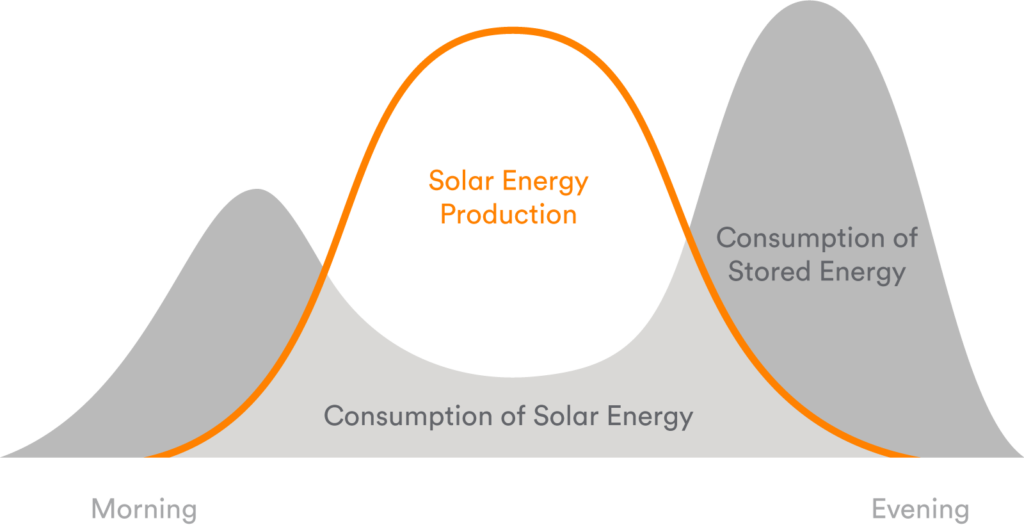As the UK continues to embrace renewable energy, the importance of outdoor battery storage is growing rapidly. In 2024, more homeowners are seeking ways to optimise their solar systems and reduce reliance on the national grid, and home battery storage is emerging as a critical solution. But where should these batteries be installed? Increasingly, the answer is outside the home, and for good reason.
In this article, we’ll explore the benefits of outdoor battery storage and why it’s becoming a top choice for homeowners across the UK.
Why Outdoor Battery Storage?
As renewable energy becomes more integrated into everyday life, the demand for efficient home battery storage systems is rising. Storing excess solar energy for later use, significantly during evenings or power outages, can greatly improve energy efficiency. But when it comes to installation, new guidance from BSI and the Department for Energy Security & Net Zero recommends outdoor battery storage rather than placing batteries inside the home. Read More


Here’s why outdoor battery storage is making waves in 2024:
1. Safety First: Keeping Batteries Outdoors
Lithium-ion batteries, commonly used in home battery storage systems, can be highly sensitive to heat and overcharging. While these batteries are generally safe, the risks associated with indoor placement—such as overheating, fires, or gas leaks—are minimised when they are stored outside.
Outdoor battery storage solutions are designed with safety in mind. Keeping them in well-ventilated, temperature-controlled enclosures dramatically reduces the chances of overheating. Additionally, many systems now come with built-in fire suppression features, ensuring higher safety for landlords and home users.
2. More Space Inside the Home
Let’s face it—UK homes are often short on space. Outdoor battery storage frees up valuable indoor areas by moving bulky equipment outside. This is especially important for homeowners in cities or those with smaller properties, where every square metre counts.
Opting for outdoor storage lets you keep your home’s interior clear while simplifying maintenance access.
3. Improved Performance and Longevity
Modern outdoor battery storage systems are designed to withstand the UK’s unpredictable weather conditions, from freezing winters to humid summers. By housing batteries in specially designed outdoor units, these systems are better protected from fluctuating temperatures and can perform more efficiently.
Temperature fluctuations indoors, like those caused by central heating or hot appliances, can negatively impact battery life and performance. Outdoor battery storage units are typically insulated and climate-controlled, ensuring the batteries maintain an optimal temperature for maximum efficiency and a longer lifespan.
Install a Solar and Outdoor Battery Storage System in just one day with the Joos Box. Learn about the Joos Box here
4. Reduced Noise and Aesthetics

Many home battery storage systems produce a low hum or noise during operation, especially during charging and discharging cycles. If the system is installed inside, this can be a distraction or annoyance for some homeowners.
Outdoor battery storage eliminates this issue by moving the noise outside, where it’s less likely to be noticed. Modern outdoor units are also designed to be visually discreet and blend seamlessly with your home’s exterior. Whether installed in the garden, by a wall, or near a garage, these units are far more aesthetically pleasing than having large battery systems indoors.
5. Adaptable to Solar and Off-Grid Solutions

Outdoor battery storage perfectly complements a solar system. By storing the excess energy your solar panels generate during the day, you can use it later in the evening or during a power outage. This reduces reliance on the grid and allows maximum use of renewable energy, lowering electricity bills and carbon footprint.
Home battery storage systems installed outdoors are crucial for homeowners considering going off-grid. They allow renewable energy storage independently, giving more control over energy supply while reducing reliance on external power sources.
6. Weather-proof and Durable
Outdoor battery storage units in 2024 are built to last. These units are constructed to handle the harshest weather conditions, whether rain, snow, or wind. With robust designs and features like the IP65 rating and IK10 impact resistance in the Joos Box, homeowners can rest assured that their energy storage systems are secure and operational, regardless of the weather.
Moreover, units can come with tamper alarms and additional security features, ensuring your home battery storage system remains safe from potential damage or theft.
7. Supporting the UK’s Energy Transition
As the UK works towards net-zero emissions by 2050, outdoor battery storage is essential to the country’s energy transition. By adopting home battery storage systems, homeowners can reduce strain on the national grid and contribute to a more stable, decentralised energy infrastructure.
With government incentives and financial benefits available, there’s never been a better time to invest in solar and outdoor battery storage, helping homeowners save on their energy bills.
Conclusion: Is Outdoor Battery Storage Right for You?
In 2024, outdoor battery storage will no longer be just a trend—it’s a smart, practical solution for property managers, builders, and homeowners looking to embrace renewable energy. With benefits ranging from enhanced safety and space savings to improved performance and environmental impact, moving battery storage outdoors is a decision that can pay off in both the short and long term.
If you’re considering installing home battery storage, consider the advantages of outdoor units. With modern technology designed to withstand the UK’s elements, you can safely enjoy reliable, efficient, and sustainable energy storage outside.


